
Experts explain how new diabetes technologies like continuous glucose monitors are transforming care beyond intensive insulin therapy, offering personalized insights and improving outcomes for patients of all treatment levels.

Experts explain how new diabetes technologies like continuous glucose monitors are transforming care beyond intensive insulin therapy, offering personalized insights and improving outcomes for patients of all treatment levels.
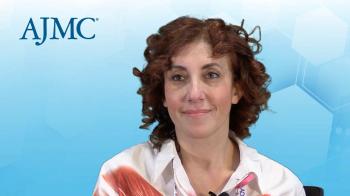
Mila Felder, MD, FACEP, emergency physician and vice president for Well-Being for All Teammates, Advocate Health, highlights strategic approaches for incorporating well-being into a postpandemic oncology workforce.
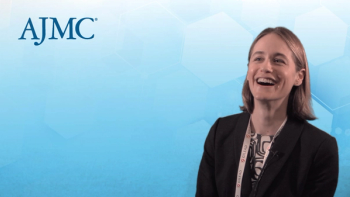
Sarah Bajorek, PharmD, MBA, BCACP, University of California, Davis Health, discusses notable gene therapies emerging into the market and strategies to proactively engage with a wide range of stakeholders during the integration of a new gene therapy.
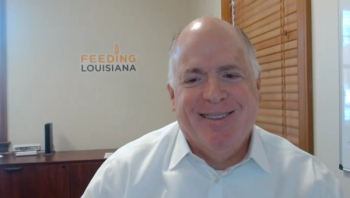
Public health campaigns are imperative to alleviating food insecurity, Pat Van Burkleo, executive director of Feeding Louisiana, the Louisiana Food Bank Association, explained in an interview.

In this interview from our coverage of the 2024 Community Oncology Conference, Shawn Tuma, JD, CIPP/US, Spencer Fane LLP, discusses how he helps clients reduce their cyber risk and be better prepared for breaches when they occur.

Monica Li, MD, medical and cosmetic dermatologist, explained the efficacy and safety differences between radiofrequency microneedling and traditional microneedling.

Lawrence Eichenfield, MD, chief of pediatric and adolescent dermatology at Rady Children's Hospital in San Diego, shared the implications of the findings from INTEGUMENT-PED, the phase 3 study assessing the efficacy and safety of once-daily roflumilast cream 0.05% in pediatric patients with atopic dermatitis (AD), for future clinical practice.

To help celebrate and recognize National Minority Health Month, we are bringing you a special month-long podcast series with our Strategic Alliance Partner, UPMC Health Plan. Welcome to our second episode, in which we learn all about Freedom House 2.0 and the Pathways to Work program.
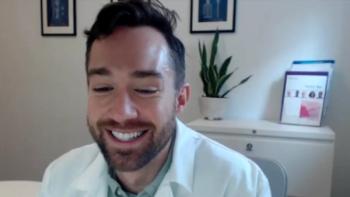
Kevin Malloy, PharmD, BCPS, BC-ADM, CDCES, Cleveland Clinic, discusses how GLP-1 receptor agonists have evolved in the treatment landscape of diabetes and obesity at an Institute for Value-Based Medicine® event hosted in conjunction with Cleveland Clinic.

Michael Farwell, MD, associate professor of radiology at the Hospital of the University of Pennsylvania, provides insights into a study on the benefits of using 18F-fluorodeoxyglucose (FDG) PET/CT imaging to detect metabolic tumor changes in skin cancer.
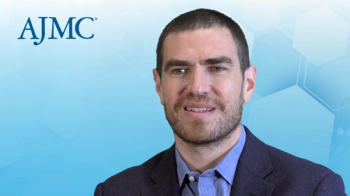
Will Shapiro, vice president of data science at Flatiron Health, discusses how the practice is using large language models (LLMs) to increase efficiency, while ensuring there are frameworks set for safety and quality.
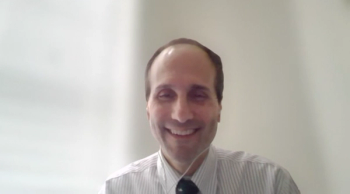
Michael Morse, MD, FACP, MHS, professor of medicine at Duke University School of Medicine and medical oncologist at Duke Cancer Center, discusses the etiologies of hepatocellular carcinoma (HCC) and how clinicians can tailor treatment for patients with varied levels of liver function.
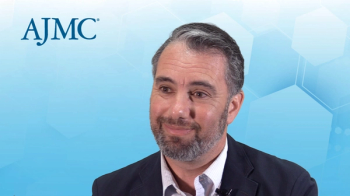
Ari Green, MD, University of California, San Francisco, discusses the promising results observed in current remyelination trials in multiple sclerosis (MS) and the patient-specific features that may influence therapy outcomes.
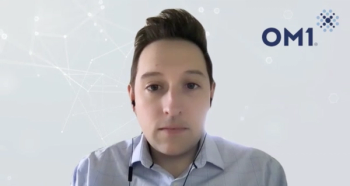
Joseph Zabinski, PhD, MEM, vice president, head of commercial strategy and AI, OM1, addresses challenges in identifying patients with generalized pustular psoriasis (GPP) and how artificial intelligence (AI) can help alleviate these concerns.

Mila Felder, MD, FACEP, emergency physician and vice president for Well-Being for All Teammates, Advocate Health, shares the importance of incorporating a culture of well-being within oncology practices.
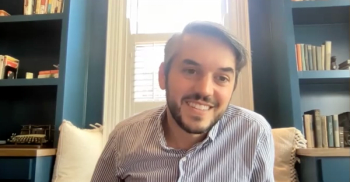
Legal expert in health care, partner, and cochair of the health care coverage and reimbursement practice at Foley Hoag LLP, Ross Margulies discusses his excitement and expectations as a featured speaker at the upcoming 2024 AMCP Annual Conference.

Pat Van Burkleo, the executive director of Feeding Louisiana, the Louisiana Food Bank Association, shares insight on legislative priorities and the impact food insecurity can have on health.
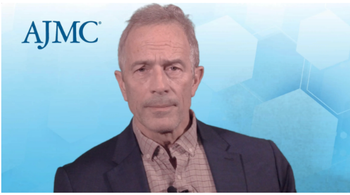
Robert Sidbury, MD, MPH, FAAD, division head of dermatology at Seattle Children's Hospital and professor of pediatrics at the University of Washington School of Medicine, discusses implementing value-based care initiatives in a pediatric dermatology practice.
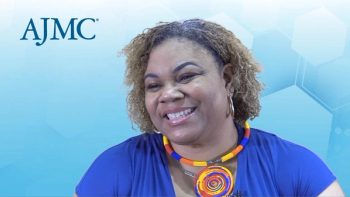
Mitzi Joi Williams, MD, of Joi Life Wellness Multiple Sclerosis (MS) Center, lists challenges in recruiting and retaining minority populations for clinical trials and discusses ways to ensure clinical trial accessibility.

To help celebrate and recognize National Minority Health Month, we are kicking off a special month-long podcast series with our strategic alliance partner, UPMC Health Plan. Welcome to our first episode, which is all about the Baby Steps Maternity Program and its mission to support women throughout every step of their pregnancy journey.

Lawrence Eichenfield, MD, of Rady Children's Hospital - San Diego, discusses the implications of the findings from INTEGUMENT-PED, the phase 3 study assessing the efficacy and safety of once-daily roflumilast cream 0.05% in pediatric patients with atopic dermatitis (AD).

Krystyn Van Vliet, PhD, of Cornell University, discusses the scalability of 3D platforms in multiple sclerosis (MS) drug discovery and compares their costs with those of other drug discovery methods.
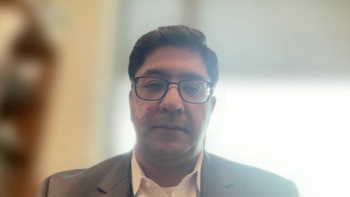
Raajit Rampal, MD, PhD, of Memorial Sloan Kettering Cancer Center, discusses the potential of a disease-modifying therapy in polycythemia vera, treating high-risk vs low-risk patients, and emerging therapies in the pipeline.
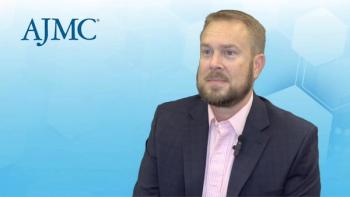
"The government really didn't rise to the challenge the way that it should have,” notes Ben Jones, vice president of government relations and public policy for The US Oncology Network. “Practices were in distress…stretching all resources to figure out workarounds."
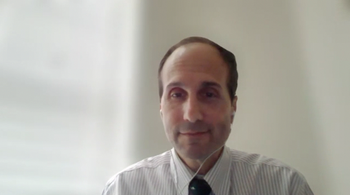
Michael Morse, MD, FACP, MHS, professor of medicine at Duke University School of Medicine and medical oncologist at Duke Cancer Center, spoke to the evolution of hepatocellular carcinoma (HCC) treatment in recent years, as well as ongoing research with potential to impact clinical practice.

Will Shapiro, vice president of data science at Flatiron Health, explains the different ethical challenges associated with various forms of artificial intelligence models used in oncology care.

Kathy Oubre, MS, CEO of Pontchartrain Cancer Center, is 1 of 6 cochairs for the 2024 Community Oncology Conference, and here she discusses how meeting content has incorporated ongoing coverage of the extremely disruptive cyberattack and how there is still so much work to be done.
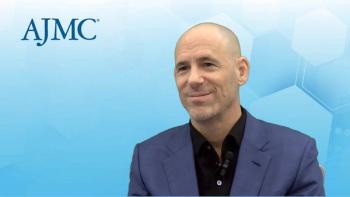
Jonathan E. Levitt, Esq, founding partner of boutique health care law firm Frier Levitt, LLC, discusses a recent class-action lawsuit brought against Johnson & Johnson in which an employee alleged a breach of fiduciary duty regarding her employer-sponsored pharmacy benefits.
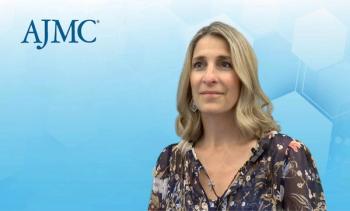
Judy Alberto, MHA, RPh, BCOP, director of clinical initiatives at the Community Oncology Alliance (COA), addresses the challenges pharmacies face in managing formularies to provide optimal patient care.

After moderating the panel discussion at The American Journal of Managed Care®’s Institute for Value-Based Medicine® (IVBM) event held in partnership with Banner|Aetna, Sandra Stein, MD, chief medical officer of Banner Health Plans, shared her key takeaway.

259 Prospect Plains Rd, Bldg H
Cranbury, NJ 08512
© 2025 MJH Life Sciences®
All rights reserved.
